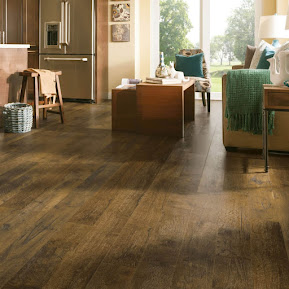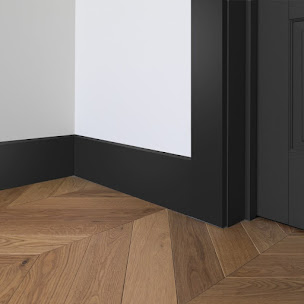What are Vinyl Sheets Made of?
Vinyl floor coverings are primarily made of a combination of polyvinyl chloride resins that exist, plasticizing agents (high molecular-weight solvents), colors, trace stabilizing agents, and a carrier sheet or backing. Although all Floor Sheets are constructed of PVC plastic and is available in rolls, manufacturers may have subtle variations in their products. But waterproof sheet vinyl is your best option if you want something that will last.
Floor Factors collaborates with the best flooring producers, and we can suggest a choice that fits your preferences, lifestyle, and financial constraints. The flooring you select can have a big impact on how your home looks. One of the modern flooring options that is popular in many homes is vinyl flooring.
Pros of vinyl sheet flooring:
- The fact that vinyl sheet flooring is water-resistant is arguably its greatest benefit. Due to its construction with water-resistant substances like PVC, this kind of flooring option is perfect for homes with areas that are susceptible to flooding. Every room in your house is a fantastic choice for sheet vinyl flooring, but the dining area, laundry room, basement, and bathrooms are where it really shines.
- Homeowners have a wide range of options when it comes to designs and textures, including imitations of hardwood floors, a rough granite finish, and ceramic tiles.
- Floor Protection Sheets are renowned for its toughness. Vinyl flooring, if it includes a wear layer, often won't stain and can withstand a lot of tear and damage, making it a fantastic alternative for highly traveled areas. Some companies create vinyl flooring that is completely waterproof, which is great for mudrooms or bathrooms.
- If installed properly, vinyl is a pretty simple material to work with. Before you start, make sure the surface you're setting it on is completely dry and flat. Even if you intend to install the flooring yourself, it can be beneficial to first hire a professional to at least make sure the floor is level.
Cons of vinyl sheet flooring:
- Although the floor's protective layer shields them from spills, this sort of flooring is prone to discoloration, particularly when it comes into contact with rubber. Vinyl flooring of lower quality has a tendency to become yellow over time. Direct sunlight can also result in this discoloration. However, this is resistant to good-quality vinyl flooring.
- Vinyl flooring only has one wear level above the design layer, so it cannot be restored. When a floor is broken, it must either be completely replaced or just the damaged portions need to be repaired. This is particularly true for vinyl sheets or vinyl of poor quality.
- This material won't decompose quickly after being disposed of because it is made of plastic and is therefore not biodegradable. This material typically isn't recycled, so it ends up in landfills.
- Replacing the entire floor is the simplest and least preferable alternative. The next step is to replace the flooring wherever the damage was in that area. Having extra flooring supplies on hand for this repair and cutting the repair to match the floor's pattern are challenges.




Comments
Post a Comment